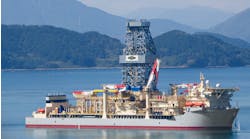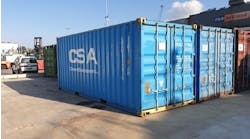Local content policies must not be protectionist, Petrobras tells WPC
Offshore staff
RIO DE JANEIRO – On June 16, Paulo Sergio Rodrigues Alonso, advisor to the Petrobras CEO on local content and executive coordinator of Prominp (National Oil and Gas Sector Mobilization Program), presided over the forum "Ensuring the security of supply of equipment, materials, and local content infrastructure" at the World Petroleum Congress (WPC) in Moscow. In his opening address, Alonso painted a picture of local content policies around the world and noted that this topic has gained global significance over the last 10 years. He emphasized, however, that these policies must not be protectionist, but act as an incentive.
Alonso argued that, "There is no doubt that the primary purpose of an effective local content policy is to promote the involvement of domestic industry in oil and gas projects, on a sustainable and competitive basis. Government policies must be to encourage, not to protect."
He pointed out that the purchasing power of a major national oil company, like Petrobras, is a powerful tool for local development and the evolution of manufacturers and service providers. The executive said that educational institutions also play an essential role, especially in countries where a lack of qualified people can be a problem.
Alonso added that "a comprehensive plan should be drawn up to train a critical mass of engineers, technicians, and administrators to keep the oil and gas industry supplied on a sustainable basis." He mentioned Prominp, which has, since 2006, provided professional qualifications to more than 95,000 people in Brazil, such as welders, mechanics, electricians, administrators, automation and control technicians, and engineers, for work in the oil industry.
Anelise Lara, Petrobras’ executive manager for the Libra field, participated a special session titled "The next wave of upstream innovation." The main aim of the session was to discuss recent and future technological innovations for oil and gas exploration and production on increasingly challenging frontiers. She used the example of the Brazilian presalt layer when talking about innovation in the upstream segment, emphasizing how the technologies used, from reservoir imaging to the development of the production units, were essential to the success of the project. This group of innovations has helped to raise production tenfold over the last four years, while also reducing project costs.
Lara noted, "We obtained considerable cost savings in the drilling and completion of wells, for example. And this is a big gain, because the wells receive almost 50% of the total project investment. If we compare now with the start of the exploratory phase, we have managed to reduce the presalt drilling and completion time by between 40% and 50%."
The company executive also spoke about cutting-edge systems used in Brazil, such as the WAG (alternating injection of water and gas) process that is being piloted in the Lula field, in the Santos basin presalt layer. "It is an important method of recovering oil,” she said. “We did not want to vent the carbon dioxide into the atmosphere and made the commitment to reinject it into the reservoir. The results so far are very promising.”
On June 15, Sylvia Anjos, the Petrobras general manager for Geology Applied to Exploration, spoke on "Women in the petroleum industry. A view from Petrobras – Brazil." She mentioned how the number of geoscientists at Petrobras had evolved over the company’s history – it now stands at approximately 2,000 professionals – and the increasing percentage of them who are women, including some in management positions. Moreover, she stressed how Petrobras admission is by public selection process, which does not allow any margin for discrimination or gender wage gaps. In closing, Anjos emphasized that the position carrying the greatest responsibility at Petrobras is currently occupied by a woman, Maria das Graças Silva Foster – the company's CEO.
06/18/2014


